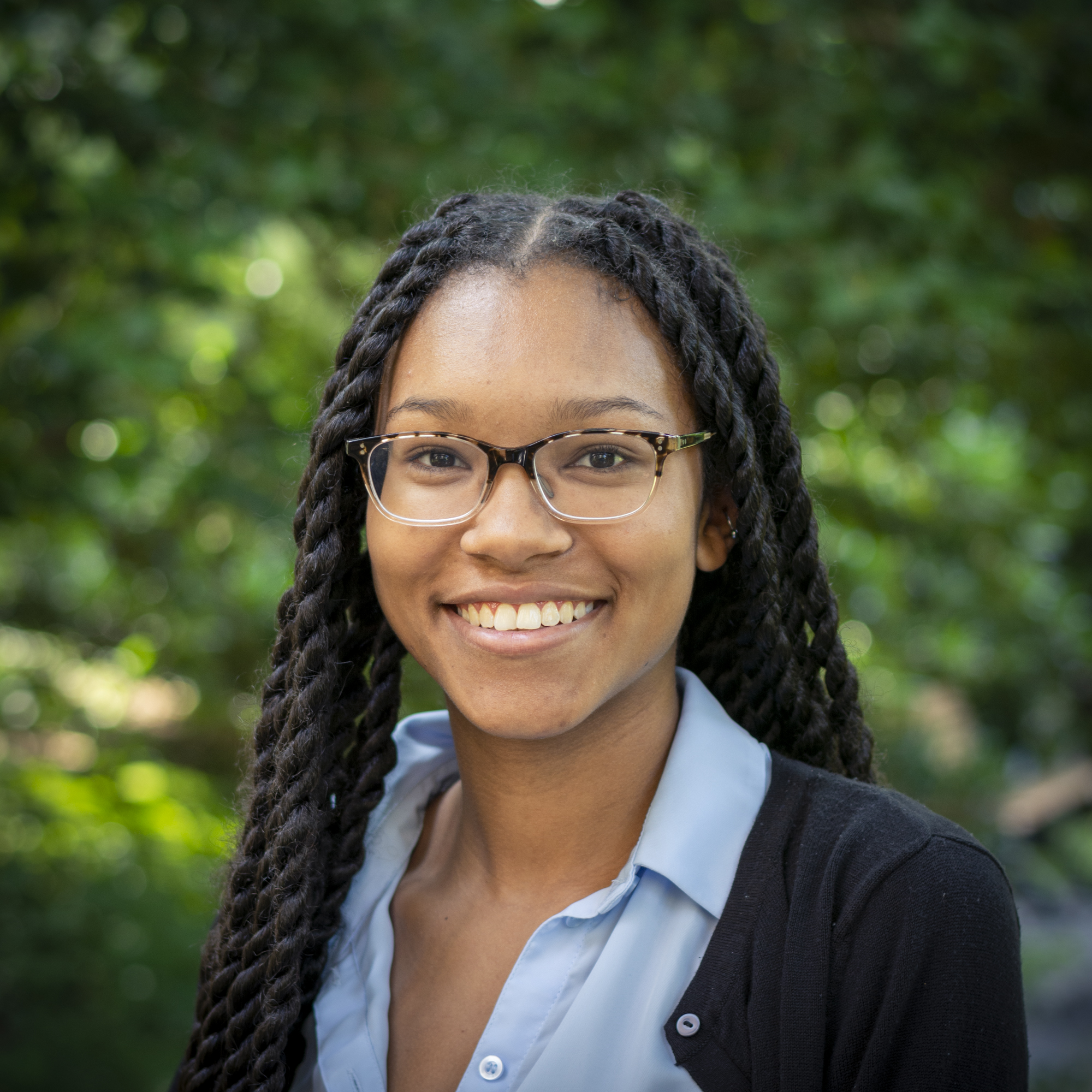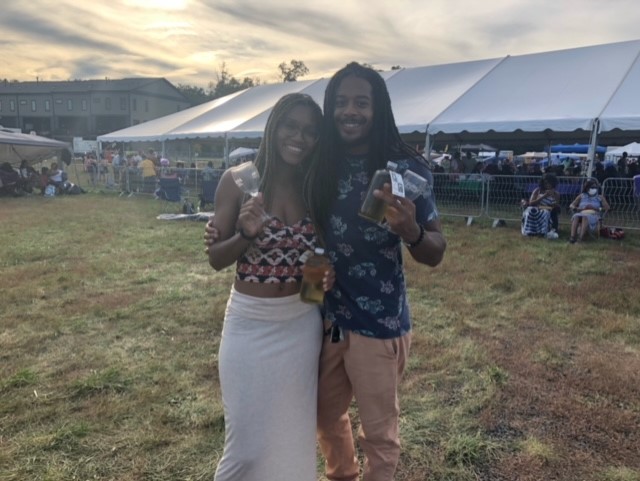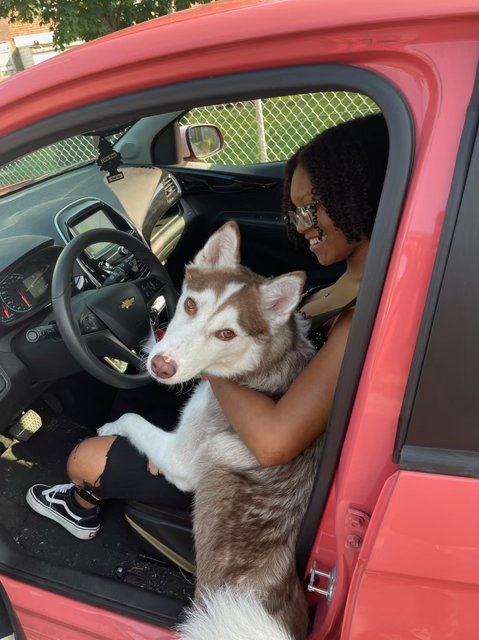
Kaylyn Clark is a sixth-year Ph.D. Candidate in Genomics and Computational Biology. In the Wang Lab, she studies the overlap between Alzheimer’s Disease and the Innate Immune System. Clark joined Penn in 2018 after receiving a BS in Bioinformatics and Computational Biology from the University of Maryland, Baltimore County.
Clark credits her current interest in research with two experiences growing up, beginning with her grandmother’s Alzheimer’s diagnosis. A few years later, she was introduced to genetics with a chromosome pairing activity where students gave diagnoses to fake patients after finding irregularities in their genes. The assignment stuck out to her because it was completely based on someone’s genetic makeup and not their symptoms. These experiences led her to question how Alzheimer’s and genetics might be related and where she could explore that further.
Early Research Experiences
Two research internships in her undergraduate impacted Clark’s scientific trajectory. Her first hands-on experience with Bioinformatics was at Northwestern University, researching the genes that contributed to Androgen Resistant Prostate Cancer. She jokes that her research led her to conclusions her lab had already made, but was grateful for the experience helping her see different possibilities in research.
Her second internship at Scripps Research focused on memory storage and used mouse studies. Clark mentions that she “does not pretend to be a wet lab person” but was amazed by a researcher completing every step of the scientific process, which included removing mouse brains.
“That was my first time seeing front to back scientific work. I thought ‘this is so cool and crazy and I don’t ever want to see you do this again’. But I would love to do the whole spectrum of an experiment from start to finish.”
Going into her degree, she always pictured herself being in a wet lab and struggled with the idea that scientists could not analyze the data they were producing. While she is on the other end of the research spectrum, her respect for the entire scientific process is still important to her.

Kaylyn at Winery with Partner, one of her musts when visiting a new city
Meeting Results with Resilience
Clark says her favorite thing about working at PNGC is being able to research from anywhere and perform science with just a laptop. On the other hand, she talks about scientific challenges and how dealing with negative results can be frustrating but that doesn’t mean a researcher should give up.
“My project has been more negative results than positive and it’s definitely been a journey of how can I make this negative into like a neutral. I can’t make it a positive. It’s not a positive result. But how can I make it at least contribute to the field as opposed to just saying ‘Sorry, I suck at science’
That’s how I started. I thought I was bad at research. And then you realize science is just hard, and it doesn’t work more than it works, you just have to accept it.”

Kaylyn with her husky Apollo
Looking to the Future
With graduation being so close, Clark is looking to expand her horizons. One plan is to stay in neuroscience and genetics but with an emphasis on cognition and decision making. Another pathway is becoming a genetic counselor or “maybe I’ll still end up being a vet tech in 10 years” (referring to a childhood dream). She says she’s figuring it out slowly, but has a wealth of ideas for her next step.
Whatever Clark does, it’s clear that opening up opportunities for other Black first-gen researchers will be a priority. She talks about how research is already hard to access without added barriers to get into the door.
“As I’ve gone forward in my career, the pool of people that look like me has gotten a lot smaller and I’m a first-generation college student, so I’m very big on pulling up the people that are coming behind me.
There’s no reason to make people struggle. It’s a waste of time. If we can make it easier, let’s make it easier. So, I do a lot of outreach to my old high school and college and helped run a summer program with my grad program.”
This is also reflected in her work in The Black Women in Computational Biology Network where she serves as the Professional Development Coordinator. Clark jokes that her ‘part-time job’ is helping other people find the best way to get into research and apply to grad school. Her dedication to that work runs deep, as she just received the Graduate Group in Genomics and Computational Biology’s Inaugural Student Leadership and Engagement Award. She ends the interview with advice to other researchers: just doing the research is not enough and more effort must be made to address systemic barriers in science.
Check out Clark’s LinkedIn and publications:
“The prediction of Alzheimer’s disease through multi-trait genetic modeling” (2023)